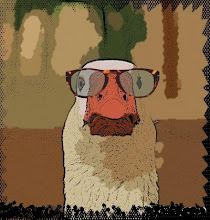Allocation of goods that one needs,
But economists who
Made markets that do
Were honored today by the Swedes.
UCLA's Professor Lloyd Shapley,
Who theorized gaming so aptly,
Wrote a smart algorithm,
Determining with 'im
How best to pair couples up happ'ly.
Stanford's Professor Al Roth,
Who is younger but from the same cloth,
Found broad application
For Lloyd's innovation
Of optim'ly plighting one's troth.
How can you efficiently allocate goods - such as donor organs, medical residencies and mates - that cannot or may not be priced? It's a good question, and today the committee of the Sveriges Riksbank Prize in Economic Sciences in Memory of Alfred Nobel(yes, that's what it's called) bestowed its 2012 prize on two US economists who answered this question and put the answer into practice. UCLA's Professor Emeritus Lloyd Shapley was a pioneer of game theory in the 1950s and '60s. Among his many accomplishments is the solution to the "stable marriage problem": how to match a group of, say, ten men with ten women, such that none of them would rather be with someone else. The algorithm that Shapley developed with David Gale has broad applications to other matching problems.
Prof. Al Roth, late of Harvard and now of Stanford, applied Shapley's theories to such problems as matching kidney donors who lack the correct blood type to donate to a member of their own family, and matching medical students to residency programs.
A number of econ blogs have written about the two Nobel Prize recipients today, but I particularly enjoyed Economists Do It With Models and the Wonkblog.










No comments:
Post a Comment